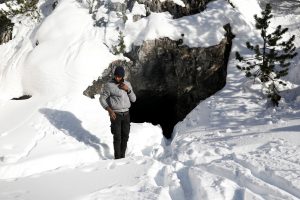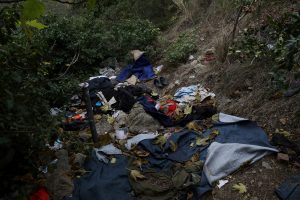
By Jess Macy Yu and Greg Torode
TAIPEI/HONG KONG (Reuters) – Taiwan’s ruling party plans to use a long-term increase in defense spending to pursue advanced weapons systems, government officials say, in what is widely seen as growing determination to forge a stronger deterrent against a Chinese attack.
The left-leaning Democratic Progressive Party (DPP), led by President Tsai Ing-wen, is working on detailed spending plans through 2025, two officials with direct knowledge of the matter told Reuters.
Tsai and her team have met repeatedly with military leaders in a push for new investment in training and equipment, one of the officials said. Immediate priorities include new missiles, drones and electronic warfare systems, fighter aircraft and ballistic missile defenses, according to a separate statement from the Ministry of National Defence sent to Reuters.
Although some arms would be domestically produced, such as an existing plan to locally build eight submarines, they say a longer-term Taiwanese drive for improved capabilities could mean fresh U.S. deals. Those requests could deepen tensions between Beijing and Washington.
China considers democratic Taiwan to be a wayward province and has never renounced the use of force to bring the island under its control.
The United States, Taiwan’s sole foreign supplier of arms, has for years called on Taipei to address a worsening military imbalance across the Taiwan Strait, which has recently seen heightened tensions amid military assertiveness by China. In the first week of 2018, China sailed an aircraft carrier and other military ships through the strait on a training mission.
“If there are three weapons systems that China’s high command really wants to keep out of Taiwan’s hands, it is submarines, fighter jets and ballistic missile defenses. Taipei is smartly investing in all three,” said Ian Easton, a U.S.-based research fellow at the Project 2049 Institute, which studies Asia security issues.
In October, Tsai signaled that defense spending would increase by at least 2 percent each year, with more possible based on the need for significant purchases.
By 2025, Taiwan’s annual defense spending is projected to increase by at least 20 percent – or NT$62.4 billion ($2.08 billion) – to NT$381.7 billion, the officials said, if the legislature approves the future budgets.
With economic growth “on track” for this year, Taiwan’s defense spending will “likely” exceed the baseline that the president has announced, one of the officials said.
“The Tsai administration is seeking to undo years of defense spending cuts,” the two officials said in a separate written statement to Reuters.
“The additional funds will target enhancements in asymmetrical defense strategies in the short-term, and advanced weapons and equipment either domestically produced or through defense procurements in the long-term,” one of them added.
Taiwan’s Ministry of National Defence confirmed to Reuters that electronic warfare, information security and improved drones were among the priorities for this year, along with existing programs, including upgrades of its Raytheon Co Patriot missile defenses, Lockheed Martin Corp F-16A/B jet fighters and indigenously built training planes.
The ministry also confirmed plans to improve mobile missile launchers, but has yet to detail whether that would mean reviving an earlier ballistic missile program or improving the cruise missiles Taiwan already has. Both are likely to face intense Chinese scrutiny.
The planned increases mark a change in commitment from the previous China-friendly Kuomintang government under President Ma Ying-jeou, under whom defense spending from 2009 to 2016 slid from 3 percent to 2.1 percent of GDP, according to government data.
Regional diplomats are watching developments closely. Although few nations have formal diplomatic or military ties with the island, any boost in Taiwan’s military could complicate China’s strategic domain.
“The military balance is rapidly shifting in China’s favor, but the new Taiwanese government is more prepared to stand up to China’s behavior,” said Singapore-based security analyst Tim Huxley. “I think some countries, particularly Japan, will see that as a net benefit by making life more difficult for China.”
In recent months, China has ramped up its long-range air force drills, particularly around Taiwan. In March, it said its defense spending would increase 7 percent for 2017, or 1.044 trillion yuan ($158.70 billion).
After taking office in 2016, Tsai has promoted Taiwan’s domestic defense industry as one of several pillars under a so-called “5 plus 2” program that seeks to foster important business sectors in Taiwan.
Analysts have said Taiwan would need to improve both asymmetric warfare and high-end capabilities like aircraft and missile defense after years of budgetary neglect.
Asymmetric warfare means using limited resources to inflict unacceptable damage to a more powerful opponent. Taiwan is betting it can make an attack on it too painful for China to consider, according to Collin Koh, a research fellow at Singapore’s S. Rajaratnam School of International Studies.
“The Taiwanese may not be able to overturn the balance of power now, but they can improve their abilities to raise the costs on China,” he said.
(Editing by Anne Marie Roantree and Gerry Doyle)










